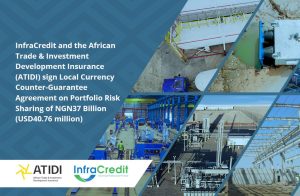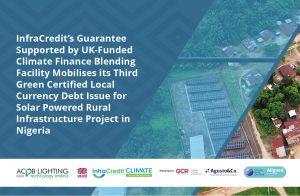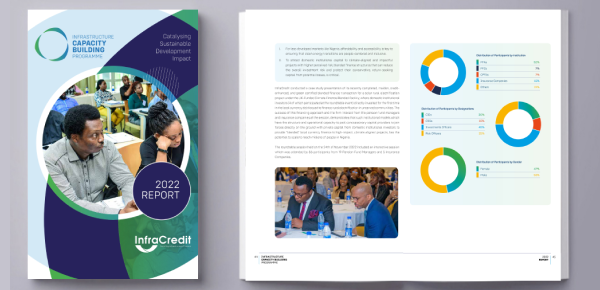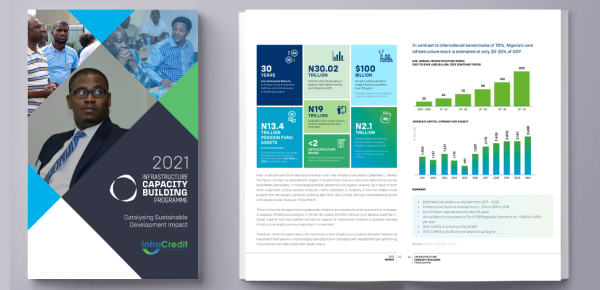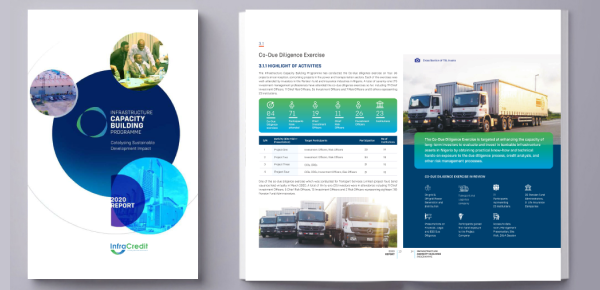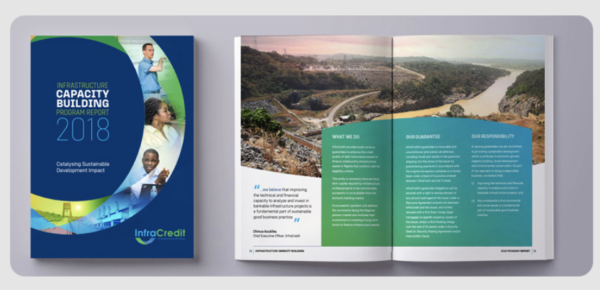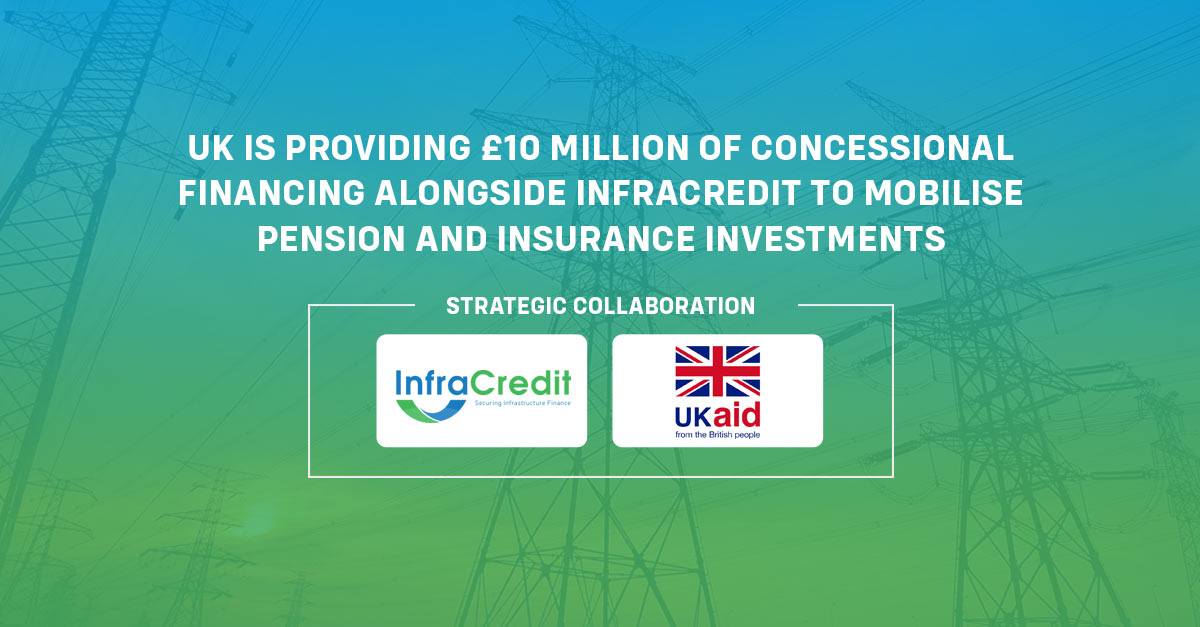

UK is providing £10 million of concessional financing alongside InfraCredit to mobilise pension and insurance investments
- February 24, 2022
The UK is providing up to £10 million of concessional aid to reduce the risk for pension and insurance funds to invest in energy access projects, and support Nigeria’s COP26 commitments.
The financing will help Nigerian investors focus on low carbon energy, supporting off-grid, low carbon energy projects.
The £10 million will be blended to de-risk transactions and therefore mobilise domestic institutional investment from local pension funds, insurance firms and other local institutional investors.
This will help scale up domestic financing for eligible off-grid clean energy infrastructure, such as solar mini-grid and home systems, clean cooking infrastructure and SME cold storage infrastructure in Nigeria.
UK Minister for Africa, Vicky Ford said:
“The UK is committed to increasing both renewable energy and energy access in Nigeria, driving clean, sustainable and resilient growth.
“As the world looks to transition to clean growth, we are witnessing an era-defining opportunity for the private sector. This transaction is particularly exciting as it brings together UK government support with the institutional capital which is essential to grow the sector at scale.”
This innovative blended finance initiative will provide affordable long-term financing from local investors for the low carbon energy sector to support scaling up of off-grid low carbon energy projects in unserved and underserved communities.
This initiative will support the implementation of Nigeria’s Nationally Determined Contributions plan, which Nigeria submitted to the UNFCCC before COP26,its Energy Transition Plan, which was presented by the Nigerian government at COP26, and Nigeria’s plans to increase energy access including the Solar Naija programme.
Uche Orji, MD/CEO of The Nigerian Sovereign Investment Authority (NSIA), and Chairman of InfraCredit, said:
“InfraCredit is pleased to be working with FCDO to mobilise private investment from domestic pension funds and other institutional investors into such an important developmental area as low carbon energy access. This programme is aligned with NSIA’s other clean energy initiatives which aims to deliver up to 250-500MW of renewable energy capacity in Nigeria that will reduce annual CO2 emissions, alleviate poverty, create jobs and support local economic growth.”
Notes to Editors
- InfraCredit is a Nigerian entity whose capital providers are the Nigeria Sovereign Investment Authority, Africa Finance Corporation, African Development Bank, KfW Development Bank, InfraCo Africa and GuarantCo. InfraCo Africa and GuarantCo are both Private Infrastructure Development Group companies funded by a range of development Partners – United Kingdom, Switzerland, Australia, Sweden, the Netherlands, France and Canada.
- InfraCredit provides local currency (Naira) guarantees to enhance the credit quality of debt instruments issued by eligible infrastructure project sponsors.
- Institutional financing is money held in pension, insurance or wealth funds for example. In Nigeria there is over 12 Trillion Naira held in such funds. It is mostly invested in government securities or occasionally in Nigerian shares. Pension funds can according to the regulator, PENCOM, deploy up to 4% of their assets into infrastructure funds but currently deploy about 0.5%. Infrastructure is a suitable for pensions as it returns finance over a long period of time.
- Nigeria needs energy to grow and industrialise but its consumption is low – India and Indonesia use 7 times as much, and 87 million Nigerians are without energy at all. Renewable energy is the way forward as it has low carbon emissions and is cleaner. It can create many jobs in Nigeria – potentially a lot more jobs than oil and gas.
- The UK hosted the UN Conference of the Parties (COP) event in November 2021, which aimed to reduce the rise in temperature from climate change and help mitigate the impacts of climate change. President Buhari attended and Nigeria submitted enhanced promises (Nationally Determined Contributions) around reducing carbon emissions by 20% (or 45% with support) and reaching net zero by 2060. These promises included the use of increased renewable energy.
- Between 2014 and 2022, the UK has provided more than £80m into the renewable energy sector in Nigeria, including both grants, technical assistance and lending and is continuing to support the sector through advisory programmes such as UK Nigeria Infrastructure Advisory Facility. The UK also provided more than $50m to set up InfraCredit in 2016.



